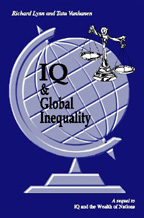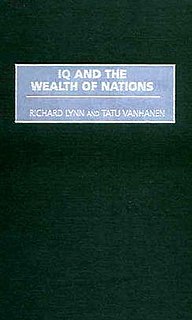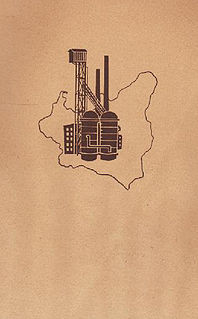 W
WAmerica's 60 Families is a book by American journalist Ferdinand Lundberg published in 1937 by Vanguard Press. It is an argumentative analysis of wealth and class in the United States, and how they are leveraged for purposes of political and economic power, specifically by what the author contends is a "plutocratic circle" composed of a tightly interlinked group of 60 families.
 W
WCapital and Ideology is a 2019 book by French economist Thomas Piketty. Capital and Ideology follows Piketty's 2013 book Capital in the Twenty-First Century, which focused on wealth and income inequality in Europe and the United States.
 W
WCapital in the Twenty-First Century is a 2013 book by French economist Thomas Piketty. It focuses on wealth and income inequality in Europe and the United States since the 18th century. It was initially published in French in August 2013; an English translation by Arthur Goldhammer followed in April 2014.
 W
WThe Hidden Wealth of Nations: The Scourge of Tax Havens is a 2013 book by French economist Gabriel Zucman, which popularized the concept of both the tax haven and corporate tax haven. The French publication was translated into English by Teresa Lavender Fagan. The foreword was written by Thomas Piketty, Zucman's PhD supervisor. Both Piketty and Zucman are critical of capitalism in its present form. Where Piketty's best-selling Capital in the Twenty-First Century was the catalyst for debate about inequality, Zucman targets individual and corporate tax havens. According to Zucman's research, $USD7.6 trillion representing about eight percent of global net financial wealth, is held in offshore accounts where no taxes are collected.
 W
WIQ and Global Inequality is a 2006 book by psychologist Richard Lynn and political scientist Tatu Vanhanen. IQ and Global Inequality is follow-up to their 2002 book IQ and the Wealth of Nations, an expansion of the argument that international differences in current economic development are due in part to differences in average national intelligence as indicated by national IQ estimates, and a response to critics. The book was published by Washington Summit Publishers, a white nationalist publisher.
 W
WIQ and the Wealth of Nations is a 2002 book by psychologist Richard Lynn and political scientist Tatu Vanhanen. The authors argue that differences in national income are correlated with differences in the average national intelligence quotient (IQ). They further argue that differences in average national IQs constitute one important factor, but not the only one, contributing to differences in national wealth and rates of economic growth.
 W
WThe Rise and Fall of the Great Powers: Economic Change and Military Conflict from 1500 to 2000, by Paul Kennedy, first published in 1987, explores the politics and economics of the Great Powers from 1500 to 1980 and the reason for their decline. It then continues by forecasting the positions of China, Japan, the European Economic Community (EEC), the Soviet Union and the United States through the end of the 20th century.
 W
WSztafeta is a 1939 compendium of literary reportage written by Melchior Wańkowicz. It was published in the year of the German-Soviet invasion of Poland. Popular demand caused it to be reprinted four times by the Biblioteka Polska before the outbreak of hostilities. The book was never published in Communist Poland because it praised the democratic achievements of the prewar Second Polish Republic.
 W
WA Troublesome Inheritance: Genes, Race and Human History is a 2014 book by British writer and journalist Nicholas Wade, a retired science reporter for The New York Times. Wade argues that "human evolution has been recent, copious and regional" and that this has important implications for the social sciences. The book has been widely denounced by scientists.
 W
WAn Inquiry into the Nature and Causes of the Wealth of Nations, generally referred to by its shortened title The Wealth of Nations, is the magnum opus of the Scottish economist and moral philosopher Adam Smith. First published in 1776, the book offers one of the world's first collected descriptions of what builds nations' wealth, and is today a fundamental work in classical economics. By reflecting upon the economics at the beginning of the Industrial Revolution, the book touches upon such broad topics as the division of labour, productivity, and free markets.
 W
WWealth, Virtual Wealth and Debt is a 1926 book by the Nobel prize-winning chemist Frederick Soddy on monetary policy and society and the role of energy in economic systems. Soddy criticized the focus on monetary flows in economics, arguing that real wealth was derived from the use of energy to transform materials into physical goods and services. Soddy’s economic writings were largely ignored in his time, but would later be applied to the development of ecological economics in the late 20th century.
 W
WWhy Nations Fail: The Origins of Power, Prosperity, and Poverty, first published in 2012, is a book by American economists Daron Acemoglu and James Robinson. Summarizes and popularizes previous research by authors and many other scientists. Based on the statements of the new institutional economics, Robinson and Acemoglu see in political and economic institutions — a set of rules and enforcement mechanisms that exist in society — the main reason for differences in the economic and social development of different states, considering, that other factors are secondary.
 W
WWinners Take All: The Elite Charade of Changing the World is a 2018 non-fiction book by Anand Giridharadas. It is his third book and was published by Alfred A. Knopf on August 28, 2018. The book appeared on The New York Times Best Seller list.